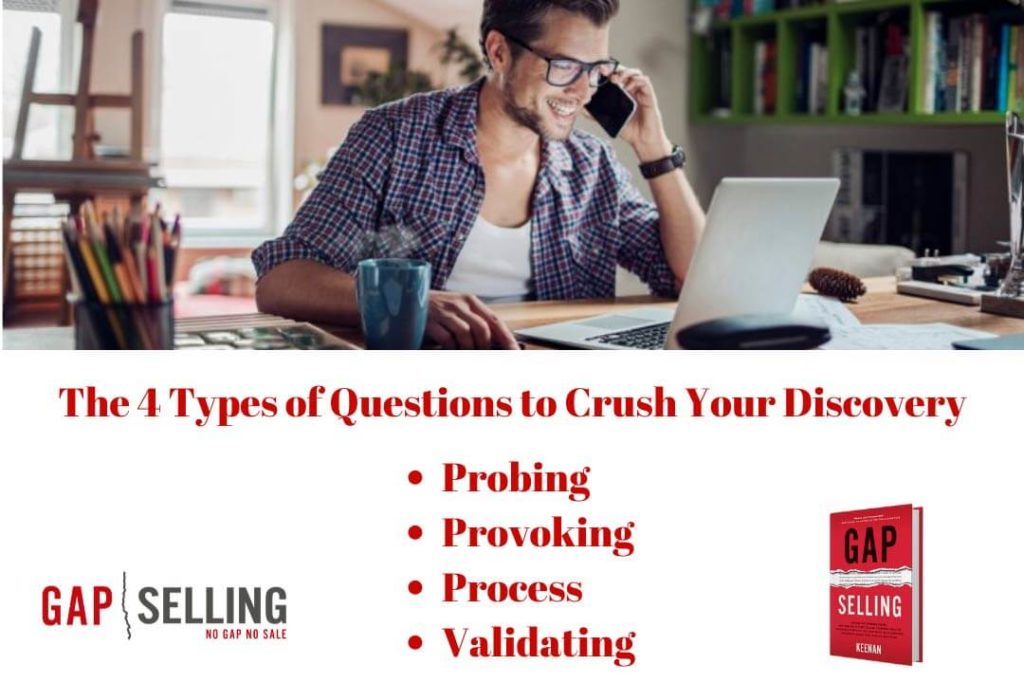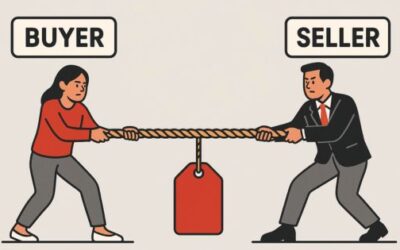The Importance of Effective Sales Discovery Questions
Too many salespeople fail at discovery calls, a critical phase in the B2B sales funnel. The discovery call is undeniably the most important part of the entire sales process and an irreplaceable part of any successful sales strategy. A salesperson’s mastery of this phase depends on their ability to ask the right types of discovery questions—questions that are relevant, specific, and designed to uncover the buyer’s true needs.
By mastering the 4 types of sales questions, including those rooted in the Gap Selling discovery framework, salespeople can conduct meaningful discovery calls that set the foundation for success.
Common Mistakes in Sales Discovery Calls
All too often, salespeople get lost as they meander from topic to topic, desperately searching for some simple problem or issue they can attach their product to, in order to quickly get to the demonstration or presentation part of the sale. You know, the part where they get to talk about their product or service. Discoveries like this aren’t even worth the time they take. Salespeople should save everyone the pain and just jump to their demo or product pitch—it will be just as ineffective.
Understanding the feeble and almost painful approaches to sales discovery questions that many salespeople embrace, I wanted to share the 4 types of discovery questions you can master to elevate your discovery calls. These questions will help you conduct a discovery that’s worth the customer’s time and significantly improve your ability to close the sale.
4 Types of Discovery Questions

Probing Questions
Probing questions are designed to get a lay of the land. Probing questions should be used to get a wide swath of information. The information you’re digging for should be about the company, their issues, their problems, what’s working, what isn’t, the size of the problem, expectations, etc. Probing questions are just that– probing. Use them to get as much information as possible.
Process Questions
Process questions are designed to ask “How?” Process questions should be used to understand how your prospect or buyer does what they do. How are they executing? Process questions uncover the execution layer of an organization that can lead to technical problems and root causes that your product or service fixes. Process questions are critical to positioning your product or service appropriately.
Provoking Questions
Provoking questions challenge your buyer to consider outcomes, impacts, issues, and risks they may not have considered. Provoking questions should be used to push the buyer into considering things they may not have thought of or considered before. “Have you given any thought to the impact of an injury to an employee, not only to the employee and your insurance, but to the team and your ability to replace them on the line…?” Buyers often look at the immediate impacts and can miss secondary or tertiary negative impacts. Provoking questions push them to look at the entire picture and consider things they may not have examined on their own.
Validating Questions
Validating questions are closed-ended questions designed to anchor the buyer in what they said, and to confirm your understanding of what they’ve said. “If I understand correctly, you are losing 10 million a year and you’re at risk of being out of compliance?” You want a yes or a no. The objective is to get the buyer to say yes or no in order for you to ground the discussion in what you’ve heard so far. It removes any ambiguity.
Discovery Questions & Finding The Gap
The ability to leverage these four questions throughout the entire discovery will help you get the information you need to properly discover the issues and problems they are having, and position your product as the only product or service to solve their problem.
A great discovery is key to finding the gap. No gap, no sale. Leveraging these 4-types of discovery call questions will improve your chance of making the sale and not wasting everyone’s time.
Learn More About Gap Selling Discovery Questions
If you found this helpful and would like to learn more on how to leverage these questions and more, a great next step would be to connect with one of our Gap Selling Certified Training Partners. They can show in real-time what a solid Gap Selling discovery looks like.





0 Comments